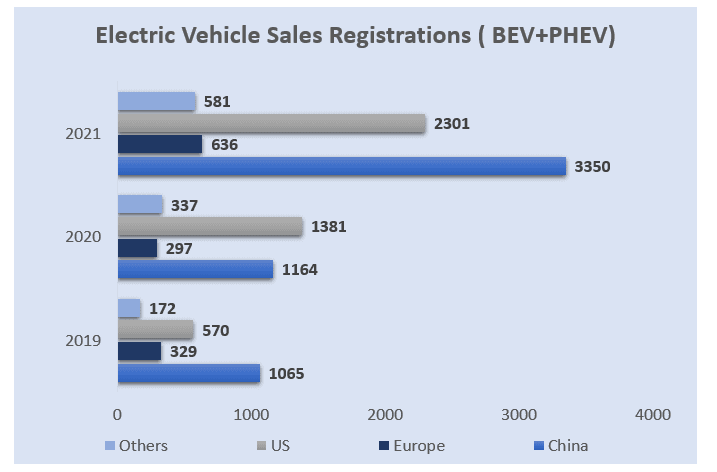Author: Vikas Kumar
17 November 2023
According to a new report by Univdatos Market Insights, Solar-Powered EV Charging Station Market, is expected to reach USD 898.1 Million in 2030 by growing at a CAGR of 15.2 %. Solar EV charging stations, also known as photovoltaic (PV) EV charging stations, use solar energy to charge electric vehicles. These stations are equipped with solar panels that capture sunlight and convert it into electricity. This electricity is then used to charge the electric vehicles. Some stations also have the capability to store excess energy in batteries for later use. Solar EV charging stations are a sustainable and eco-friendly solution for charging electric vehicles. They reduce dependence on fossil fuels and help in reducing carbon emissions. Moreover, they can provide energy independence as they do not rely on the grid for electricity.
Access sample report (including graphs, charts, and figures): https://univdatos.com/get-a-free-sample-form-php/?product_id=47534
The global solar EV charging market is experiencing significant growth due to the increasing adoption of electric vehicles, rising fuel prices, and growing environmental concerns. Despite the benefits, there are some challenges associated with solar EV charging stations. These include high upfront costs, reliance on weather conditions for energy generation, and the need for space for the installation of solar panels. However, with advancements in technology and increasing government support, the adoption of solar EV charging stations is expected to increase in the future. Innovations like portable solar chargers and solar-powered parking lots are also emerging in this field.
Fig1: Increase in EV sales

The surge in the sales of electric vehicles is one of the key factors driving the demand for the EV battery market during the forecast period.
High Demand: The demand for electric vehicles is driven by initiatives taken by governments of various countries to promote the manufacturing of electric vehicles (EVs). For instance, in 2022, the Ministry of Power issued the revised consolidated Guidelines and Standards for EV charging infrastructure on January 14, 2022. The Government of India has undertaken multiple initiatives to promote the manufacturing and adoption of electric vehicles in the country. Efforts by the government resulted in a 2.5 times increase in charging stations in 9 mega cities in the last four months.
Government Initiatives: On September 26, 2022, the Ministry of Finance (MOF), the State Taxation Administration (STA), and the Ministry of Industry and Information Technology (MIIT) jointly released the Announcement on Continuing Tax Exemptions on Purchases of New Energy Vehicles (Announcement). According to the Announcement, purchases of new energy vehicles (NEVs) that occur between January 1, 2023, and December 31, 2023, will continuously be exempted from vehicle purchase tax. Only NEVs included in the List of NEV Models Exempted from Purchase Tax (List), updated to its 58th batch, are eligible for tax exemption..
Click here to view the Report Description & TOC https://univdatos.com/report/solar-powered-ev-charging-station-market/
Conclusion
Solar-powered EV charging is not only possible but also an eco-friendly and cost-effective solution. With advancements in technology, solar panels are becoming more efficient and affordable, making them a viable alternative to traditional charging methods. The combination of solar energy and electric vehicle (EV) charging is key in drastically reducing the dependence on fossil fuels. Most people will charge their electric cars with their home solar charging stations while they sleep or while they’re at work. Just 10 solar panels should provide roughly enough electricity to power 21,000 kilometres of electric driving each year. However, it’s important to note that due to the limited capacity of the photovoltaic (PV) as well as the batteries, the power system may not be cost-effective. Furthermore, since PV is intermittent, it is probable that it will not be able to generate enough electricity to meet consumer demand. In conclusion, while solar-powered EV charging has its challenges, it is a promising and sustainable solution for the future of transportation.
Get a call back